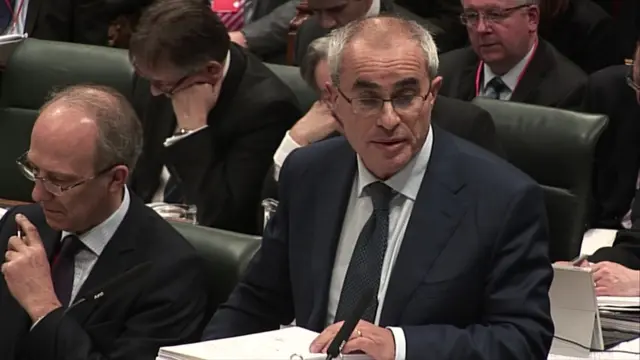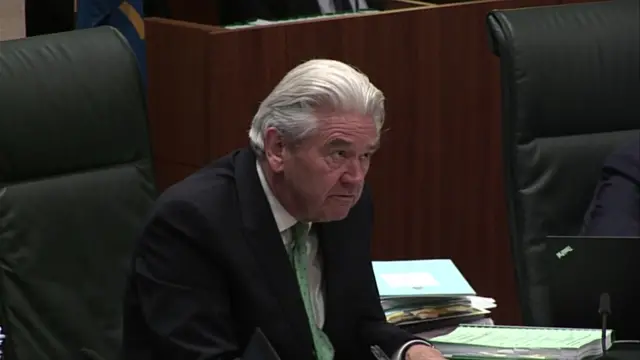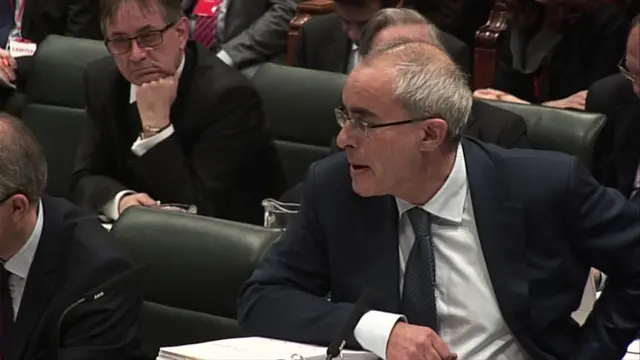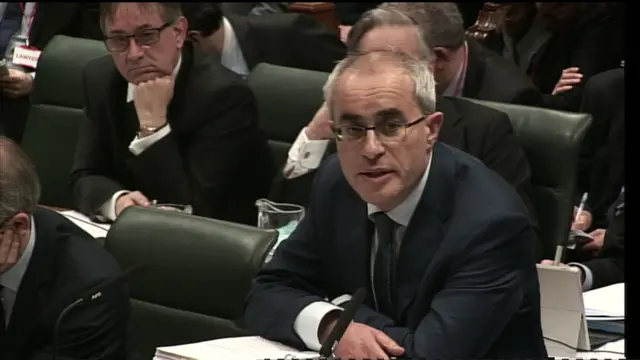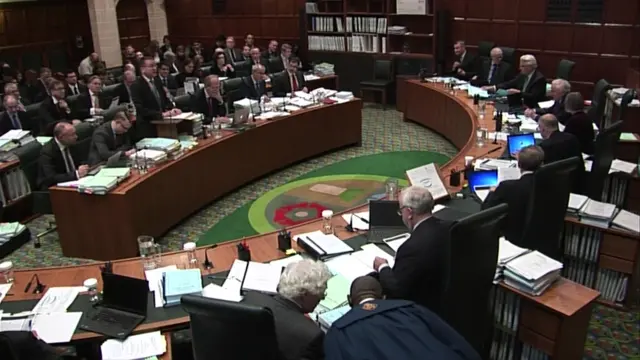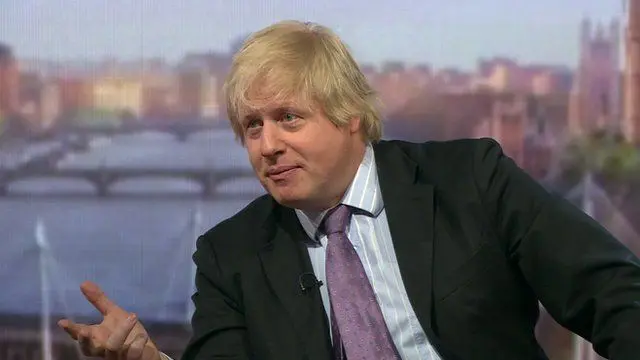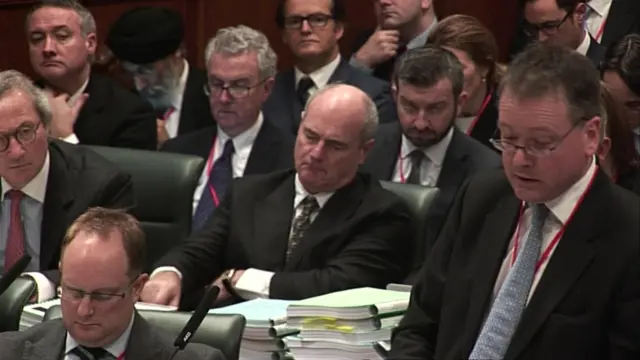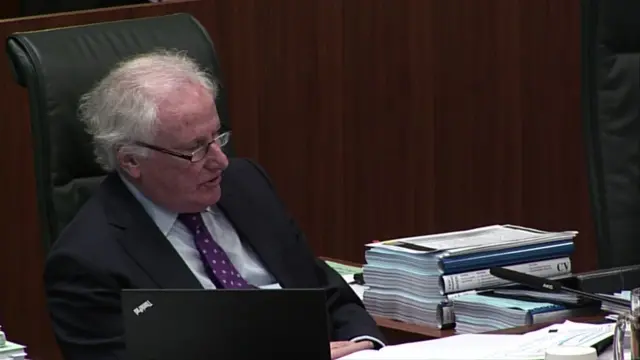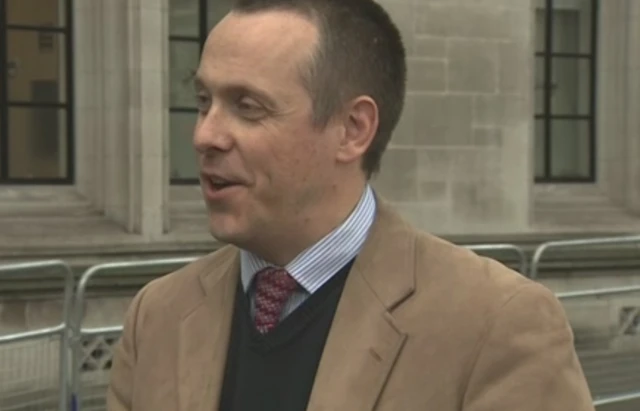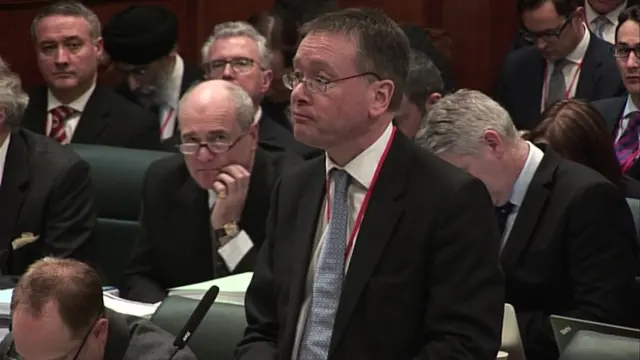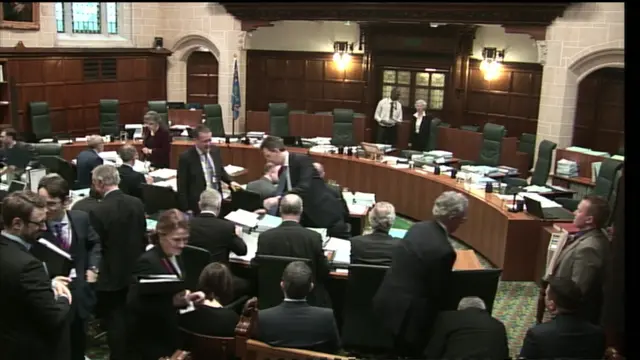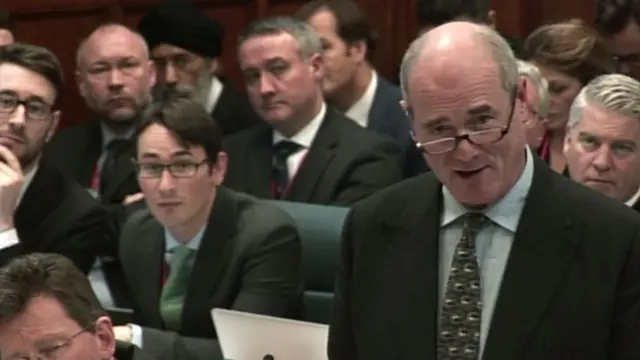'Only Parliament' can authorise Article 50published at 15:37 GMT 6 December 2016
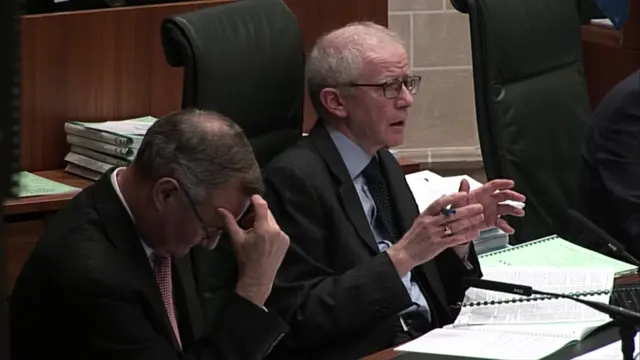 Image source, Supreme Court
Image source, Supreme CourtThe argument that Parliament can choose how to be involved in the Brexit process at any time in the next few years does not hold water either, Lord Pannick argues, since Article 50 notification will in effect nullify statutory rights and obligations for good and there will be no turning back from that.
"There is no prerogative power to notify and only an act of Parliament can give such authorisation," he says.
